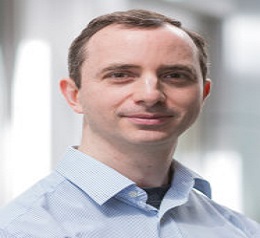Scholars International Webinar on
Cancer Research and Therapeutics
THEME: "Current Perspectives and New Challenges in Cancer Research and Therapy"
 23-24 Nov 2021
23-24 Nov 2021  ONLINE & VIRTUAL
ONLINE & VIRTUAL THEME: "Current Perspectives and New Challenges in Cancer Research and Therapy"
 23-24 Nov 2021
23-24 Nov 2021  ONLINE & VIRTUAL
ONLINE & VIRTUAL 
Imperial College London, UK
Title: RSK4: a novel target for the treatment of lung and bladder cancers
Olivier E. Pardo graduated from Paris-V University, France where he was awarded a MSc in Molecular Biology (1995) and a Doctorate in Industrial Pharmacy (1997). He then moved to the UK where he completed his PhD at Imperial College-London (2002). He subsequently joined the laboratory of Prof. Julian Downward at the CRUK-London Research Institute as a post-doctoral fellow where he worked on the regulation of apoptosis and cell migration. In 2006, he became team leader at Imperial College-London, Department of Surgery and Cancer where he created the Cellular Regulatory Networks lab. His team focuses on understanding the molecular mechanisms underlying chemo-resistance and metastasis in cancers using multidisciplinary collaborations with labs worldwide. His research led to the initiation of clinical trials in lung and breast cancer patients. He is a fellow of the Royal Society of Biology and a member of the British Association for Cancer Research and the Biochemical Society.
Lung and bladder cancers are mostly incurable due to early development of drug resistance and metastatic dissemination. Hence, novel therapies that tackle these two processes are urgently needed to improve clinical outcome. We have identified the kinase RSK4 as a promoter of drug resistance and metastasis in lung and bladder cancer cells and its silencing, either through RNA interference or CRISPR, sensitises to chemotherapy and hinders metastasis in vitro and in vivo. Conversely, overexpressing RSK4 promotes drug resistance and invasiveness. We identified the molecular mechanisms underlying these biological functions: regulation of drug resistance was through the control of the expression of antiapoptotic proteins (especially cIAP2) while the regulation of cell invasiveness was through the control of NFkB activity with p300 being a novel substrate for RSK4. Drug screening revealed several floxacin antibiotics as potent allosteric RSK4 activation inhibitors and trovafloxacin reproduces all effects of RSK4 silencing in vitro, in vivo in two separate mouse models and ex vivo in patients’ tumour explants. Through X-ray structure determination, Markov transient and Deuterium exchange analyses, we identify the allosteric binding site and reveal how this compound blocks RSK4 kinase activation. Finally, we show that patients undergoing chemotherapy and adhering to prophylactic levofloxacin in the large placebo-controlled randomised phase 3 SIGNIFICANT Trial had significantly increased long-term overall survival times. Hence, we suggest that RSK4 inhibition may represent an effective therapeutic strategy for treating lung and bladder cancer.